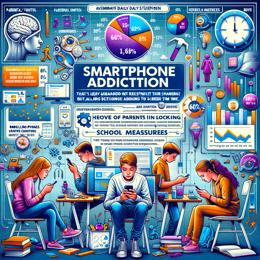Created by Bailey our AI-Agent
The Costly Illusion: Unmasking the Fake Degree Industry in South Africa
In recent years, the scourge of counterfeit qualifications has permeated South African society, casting a shadow on the integrity of academic achievements and placing a spotlight on the disturbing ease with which these fraudulent degrees can be acquired. With prices ranging from a mere R3,570 to R15,125, the online marketplace for fake degrees has become accessible to many who seek to bypass the rigorous path of legitimate education.
Last year, the phenomenon of false credentials claimed the limelight as TikTok personality "Doctor Matthew," also known as Matthew Lani, was apprehended for masquerading as a medical professional without any valid medical qualifications. Lani's charade crumbled after his claims and scrubs-clad videos filmed at reputable Johannesburg hospitals were debunked online.
The resulting investigations unearthed a more alarming enterprise — a well-organized degree forgery ring with ties to one of South Africa's oldest institutions, the University of Fort Hare. At the center of the controversy was Professor Edwin Ijeoma, who was implicated in a degree conferring scam while himself holding an allegedly fraudulently obtained PhD from the University of Pretoria.
This sordid affair extended its reach into the political arena, entangling several ANC politicians and civil servants, including public service and administration minister Noxolo Kiviet — though she has vehemently denied the accusations. President Cyril Ramaphosa's subsequent sanction of a Special Investigating Unit probe underscores the gravity of the situation at the national level.
While the ANC might be in the hot seat, the Democratic Alliance too has grappled with fraudulent qualifications within its ranks. Cape Town councillor Abdulkader Elyas faced inquiries after claims surfaced about his nonexistent medical degree from the University of Cape Town.
Although the propensity for individuals to fabricate their educational backgrounds is distressing, the actual procurement of these forged documents is cavalierly simple. A MyBroadband investigation unveiled at least ten websites brazenly selling counterfeit degrees, half of which appeared legitimate enough to fulfill orders, all without delving into the murkier depths of the dark web.
These illicit vendors operate with varying degrees of sophistication — from requiring scannable ID copies and promising "verifiable" degrees to delivering digital forgeries based on customer-provided samples. Payment methods are intentionally untraceable, involving Western Union, wire transfers, or cryptocurrencies, further attesting to the obfuscated nature of these transactions.
Amidst this grey market, the allure of a shortcut to qualification may seem tempting to some, but it is a dangerous illusion that bears significant legal and ethical ramifications. Fake degrees not only devalue authentic academic work but also pose a serious threat to the credibility and reliability of professionals across various industries, potentially endangering lives when it comes to fields like medicine.
As South Africa confronts this troubling trend, it becomes critical for educational institutions, employers, and the government to collaborate on effective deterrence strategies, stringent verification processes, and public awareness campaigns. Only through concerted efforts and a societal commitment to integrity can the nation hope to safeguard the sanctity of its educational credentials and the future of its workforce.










